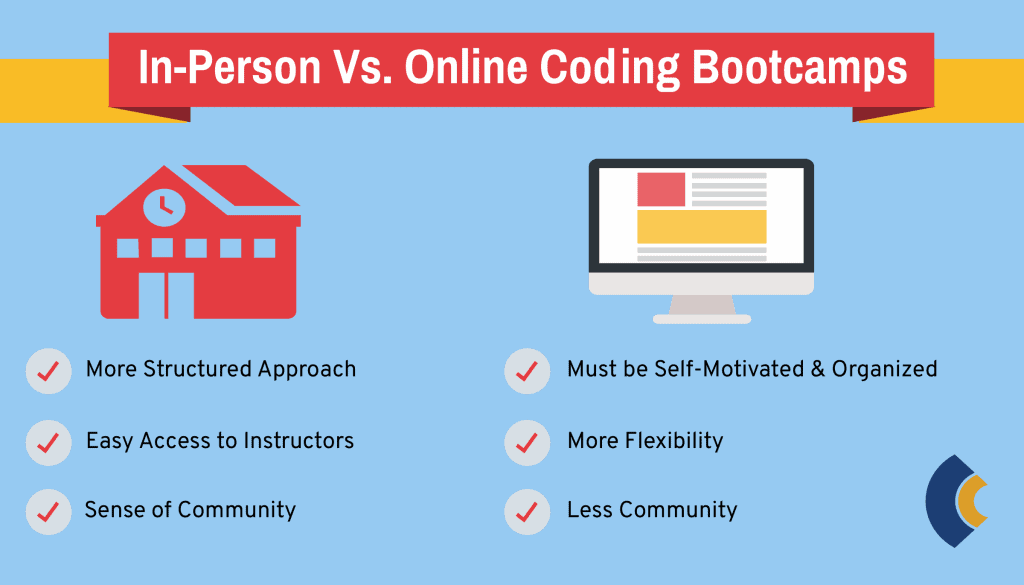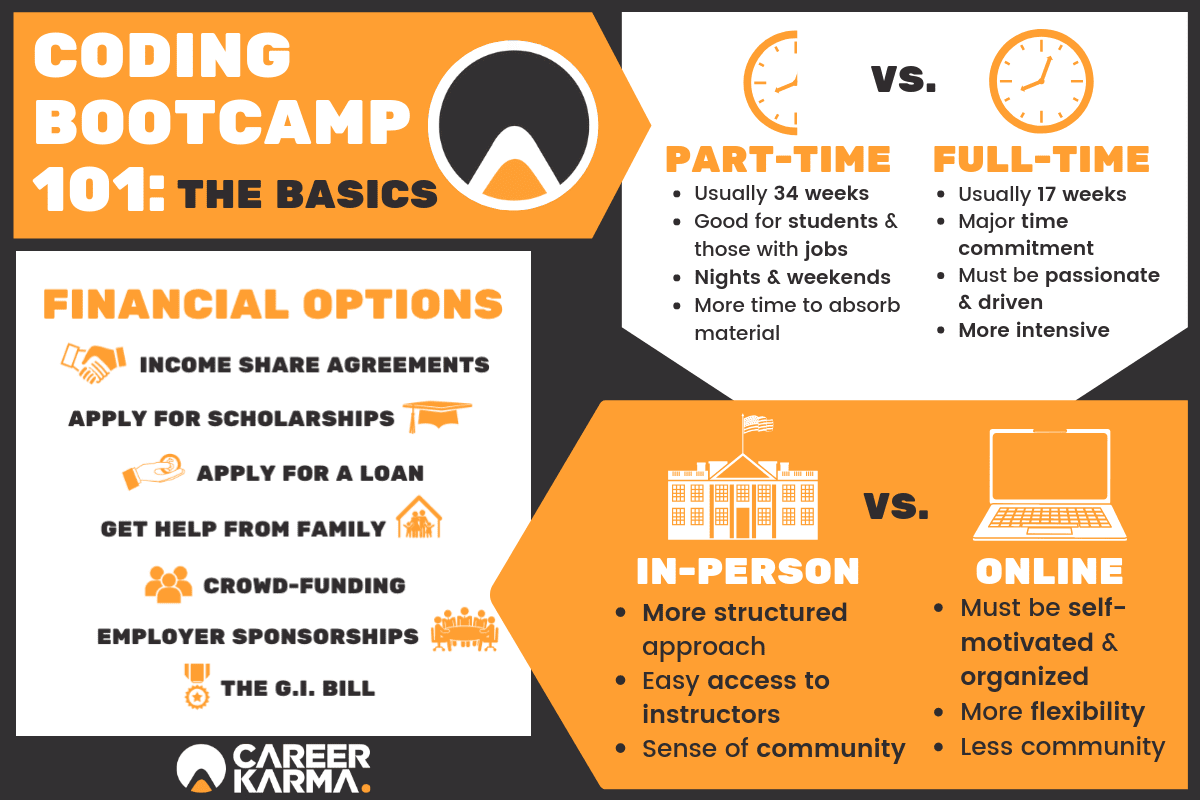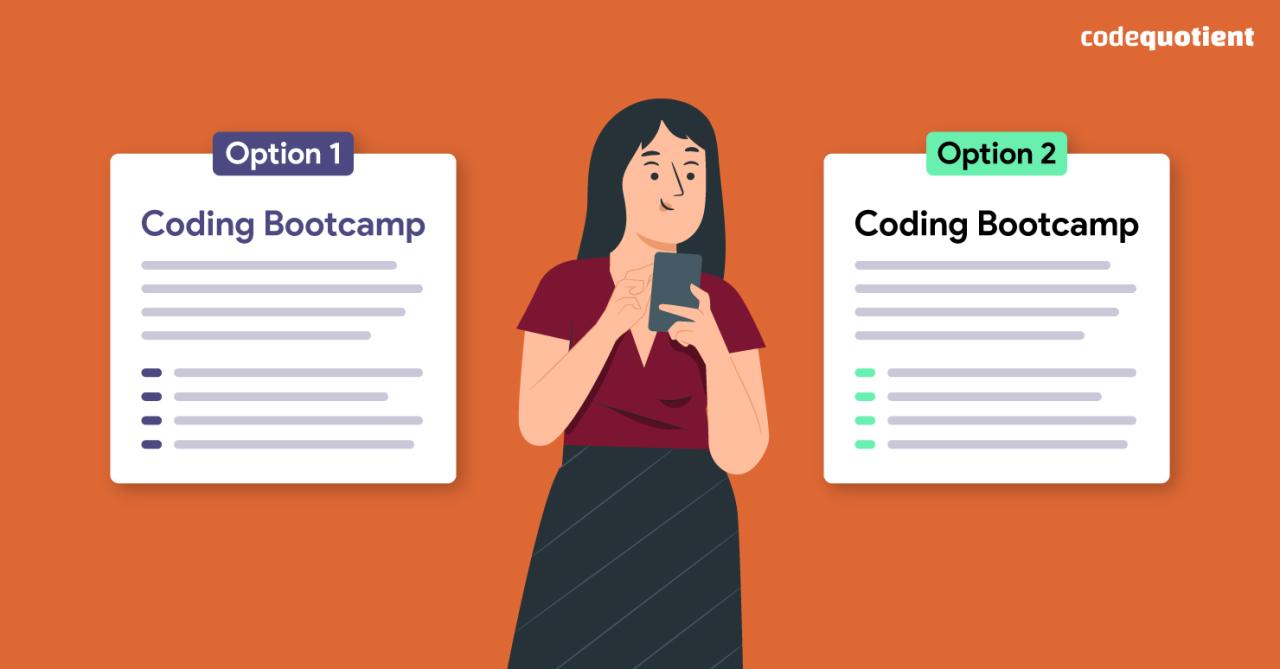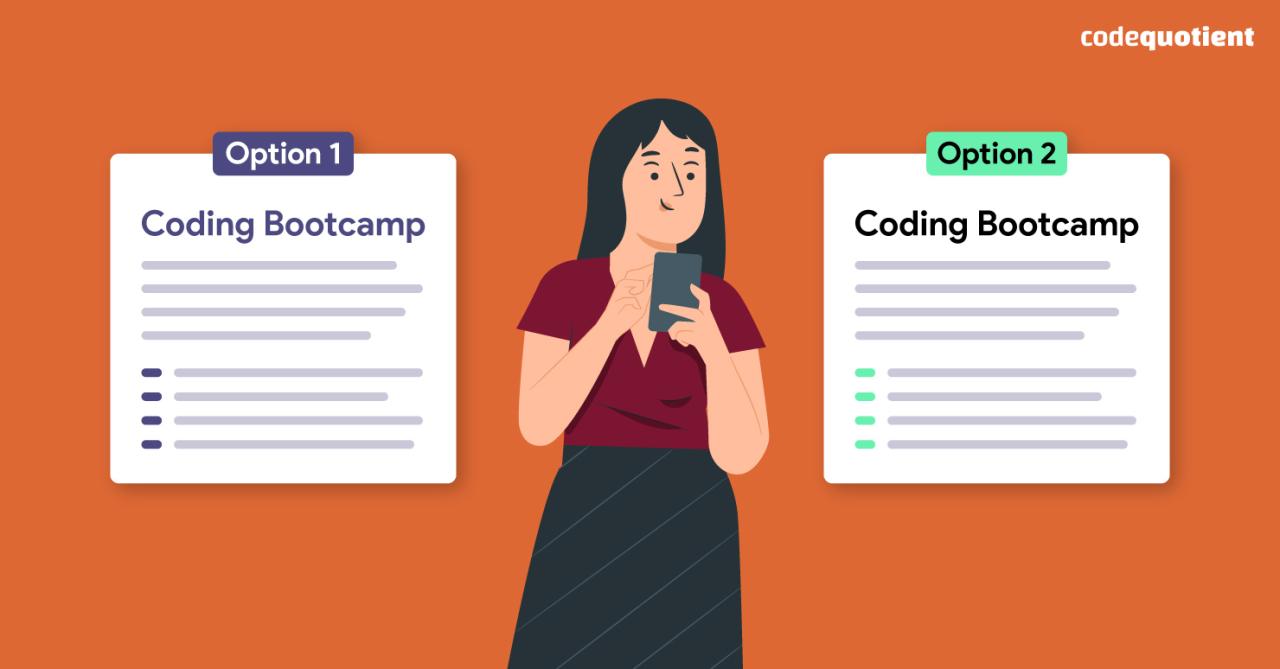Time Investment Comparison

Choosing between a coding bootcamp and a traditional computer science degree involves a significant consideration of time commitment. Both pathways lead to careers in software development, but they differ drastically in their intensity and duration. This section will analyze the time investment required for each, exploring the implications of accelerated versus gradual learning.
Are coding bootcamps a shortcut – The primary difference lies in the compressed timeframe of bootcamps compared to the extended duration of university programs. Bootcamps offer an intensive, focused learning experience, while university degrees provide a more comprehensive and broadly based education.
Program Length and Weekly Hours
The following table compares the average time commitment for each educational path. Note that these are averages and can vary significantly depending on the specific program and individual student’s dedication.
| Program Type | Average Program Length | Average Weekly Hours | Notes |
|---|---|---|---|
| Coding Bootcamp | 3-6 months | 40-60+ hours | Intensive, full-time commitment often required. |
| Computer Science Degree | 4 years | 12-15 hours (per course, varies by semester) | Part-time study possible, spread over several years. |
Learning Curve Differences
The accelerated nature of bootcamps creates a steep learning curve. Students are expected to absorb a large amount of information in a short period. This contrasts with the more gradual pace of university education, which allows for deeper understanding and more time for knowledge consolidation.
Bootcamps often prioritize practical skills and project-based learning, immediately applying concepts. Universities, on the other hand, tend to incorporate more theoretical foundations and broader computer science principles, sometimes delaying practical application until later semesters.
Impact of Compressed Timeline on Learning Retention and Practical Application
The intense, compressed learning environment of a bootcamp can impact long-term retention for some students. The sheer volume of material covered in a short time may lead to superficial understanding rather than deep mastery of concepts. However, the immediate practical application fostered by project-based learning can lead to quicker proficiency in specific technologies and faster entry into the job market.
Conversely, the longer duration of a university degree allows for more in-depth exploration of topics and greater opportunities for knowledge consolidation. This can lead to stronger foundational knowledge and better long-term retention, but potentially at the cost of delayed entry into the workforce. For example, a graduate from a 4-year computer science program might possess a more comprehensive understanding of algorithms and data structures than a bootcamp graduate, but the bootcamp graduate might be ready for a junior developer role sooner.
Skill Acquisition and Depth

Coding bootcamps and university computer science programs offer distinct pathways to acquiring coding skills, differing significantly in both the breadth and depth of knowledge imparted. While bootcamps prioritize rapid, practical skill acquisition for immediate job readiness, university programs cultivate a more comprehensive understanding, including theoretical underpinnings and broader contextual knowledge. This difference significantly impacts the type of roles graduates are prepared for and their long-term career trajectory.
The contrasting approaches to skill development result in graduates possessing different skill sets. Bootcamps tend to focus on immediately applicable skills, while universities prioritize a deeper understanding of underlying principles.
Skill Comparison: Bootcamps vs. Universities
The skills acquired in each learning environment differ substantially. Bootcamps typically focus on practical, in-demand skills, offering intensive training in specific programming languages and frameworks relevant to current industry needs. Universities, conversely, provide a more holistic education, encompassing a broader range of theoretical and practical skills.
- Bootcamps: Typically cover specific programming languages (e.g., Python, JavaScript, Java), popular frameworks (e.g., React, Node.js, Spring), databases (e.g., SQL, MongoDB), and front-end/back-end development methodologies. They often include project-based learning and portfolio building, emphasizing immediate job readiness.
- Universities: Cover a broader spectrum of topics, including data structures and algorithms, computer architecture, operating systems, databases, software engineering principles, discrete mathematics, and potentially specialized areas like artificial intelligence or cybersecurity. They typically involve more theoretical coursework, research projects, and formal assessments.
Limitations of Bootcamp Curricula, Are coding bootcamps a shortcut
While bootcamps effectively equip students with practical skills for entry-level positions, they often lack the depth of theoretical computer science foundations provided by university programs. This limitation can hinder long-term career advancement and adaptability to evolving technological landscapes.
A key area where bootcamps often fall short is in the rigorous study of algorithms and data structures. A deep understanding of these concepts is crucial for writing efficient and scalable code, a skill highly valued in senior-level roles. While bootcamps might introduce these concepts, the level of detail and theoretical exploration is typically less extensive than in a university setting. Similarly, areas like computer architecture, operating systems, and formal language theory, crucial for advanced software development and system design, are often given less emphasis or omitted entirely. This can limit a bootcamp graduate’s ability to tackle complex problems and contribute meaningfully to large-scale projects.
Practical Application vs. Theoretical Emphasis
Bootcamps prioritize practical application and immediate job readiness. Their curricula are heavily project-based, simulating real-world scenarios and enabling students to build a portfolio showcasing their skills. This approach makes them particularly appealing to individuals seeking rapid career transitions or upskilling opportunities.
Universities, on the other hand, often place a greater emphasis on theoretical understanding and the underlying principles of computer science. While practical skills are still developed, the focus is on building a solid foundation in the fundamental concepts that underpin all aspects of software development. This theoretical base allows graduates to adapt more easily to new technologies and solve complex problems creatively. For instance, a strong understanding of algorithm design principles enables a graduate to tackle optimization problems in various contexts, while a deep understanding of database design facilitates the creation of efficient and scalable data management systems. The difference is akin to learning to drive a car (bootcamp) versus understanding how the engine works (university). Both are valuable, but the latter provides a much broader understanding and capability for problem-solving and innovation.
Job Market Success and Employability: Are Coding Bootcamps A Shortcut

Coding bootcamps have emerged as a popular alternative to traditional computer science degrees, promising accelerated career paths in the tech industry. However, understanding their actual impact on job market success requires a nuanced examination of placement rates, common roles, and the role of supplementary factors like networking and personal projects. This section delves into these key aspects to provide a comprehensive picture.
Job Placement Rates: Bootcamps vs. Universities
Comparing the job placement rates of bootcamp graduates and university computer science graduates provides valuable insight into the effectiveness of each pathway. While precise figures vary depending on the bootcamp, location, and specific university, general trends can be observed. It’s crucial to note that data collection methodologies differ, making direct comparisons challenging. Some bootcamps may report higher placement rates by including individuals who found jobs within a shorter timeframe or by using broader definitions of “job placement.” University statistics often encompass a wider range of career paths, not just those directly related to computer science.
| Category | Bootcamp Graduates (Average Estimate) | University Computer Science Graduates (Average Estimate) |
|---|---|---|
| Job Placement Rate within 6 Months of Completion | 70-80% | 85-95% |
| Average Time to Job Placement | 3-6 months | 6-12 months |
| Starting Salary (Median Estimate) | $60,000 – $80,000 | $65,000 – $90,000 |
Note: These figures represent averages and may vary significantly depending on the specific institution, program, location, and economic conditions. Reliable data often comes from individual bootcamp reports and university career services offices, which should be consulted for more precise figures.
Common Job Roles and Starting Salaries for Bootcamp Graduates
Bootcamp graduates typically secure roles requiring practical coding skills. These roles often emphasize immediate productivity and hands-on experience rather than extensive theoretical knowledge. The specific roles and salaries depend heavily on the bootcamp’s specialization and the student’s individual skills.
Examples of common roles include:
- Junior Web Developer: Starting salaries typically range from $55,000 to $75,000 annually.
- Junior Software Engineer: Starting salaries generally fall within the $60,000 to $85,000 range.
- Data Analyst: Entry-level positions can start at $50,000 and reach $70,000 or more depending on experience and location.
- Front-End Developer: Salaries for junior front-end developers often start between $60,000 and $80,000.
The Importance of Networking and Personal Projects
While a strong bootcamp curriculum provides a foundational skillset, securing employment often hinges on factors beyond coursework. Networking and personal projects play a crucial role in demonstrating practical skills and making connections within the industry.
Effective networking involves:
- Attending industry events and meetups.
- Actively engaging with online communities and forums.
- Building relationships with instructors and fellow students.
- Reaching out to professionals on LinkedIn.
Developing a portfolio of personal projects allows graduates to showcase their abilities and problem-solving skills to potential employers. These projects can be:
- Simple web applications demonstrating proficiency in front-end and back-end development.
- Data analysis projects using publicly available datasets.
- Contributions to open-source projects on platforms like GitHub.
Building a strong network and showcasing practical skills through personal projects significantly increases the chances of securing a desirable job after completing a coding bootcamp.


Tim Redaksi